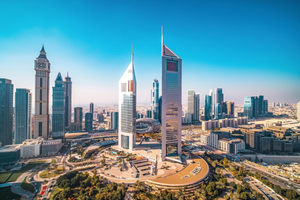The UAE’s Islamic finance sector is poised for significant growth, buoyed by the non-oil economy and increased foreign capital, according to S&P Global Ratings.
This year, foreign currency Sukuk issuance surged, especially within real estate and financial sectors, as companies increasingly tap into Islamic finance to attract foreign investment.
At the 14th Annual Islamic Finance Conference held by S&P and the Dubai International Financial Centre (DIFC), Dr. Mohamed Damak, Global Head of Islamic Finance at S&P, highlighted the global Islamic finance industry’s expansion.
“The sector’s assets reached $3.3 trillion by the end of 2023, an 8% increase from last year, with strong growth in the GCC’s Islamic banking sector,”
he stated.
While local currency Sukuk issuance faced slight declines in markets like Turkey due to higher interest rates, the UAE’s sector remains resilient. S&P projects high single-digit growth through 2025, supported by expected US interest rate cuts totaling 225 basis points by the end of that year. This would enhance market liquidity, further driving Sukuk issuance.
Sustainable finance is also emerging as a key growth area, particularly as oil-exporting nations pursue carbon neutrality. Rawan Oueidat, Director at S&P, noted that while Europe and Asia dominate sustainable bond issuance, the Middle East’s market share is growing, with the UAE and Saudi Arabia leading regional sustainability Sukuk demand.
In the insurance sector, Emir Mujkic, Director at S&P, projects a 15-20% growth in both conventional and Islamic insurance, bolstered by economic performance and infrastructure investment, especially in medical and motor insurance. Islamic insurance comprises approximately 15% of the UAE’s total insurance market, marking it as a vital component in the nation's financial growth.
News Source: Emirates News Agency









